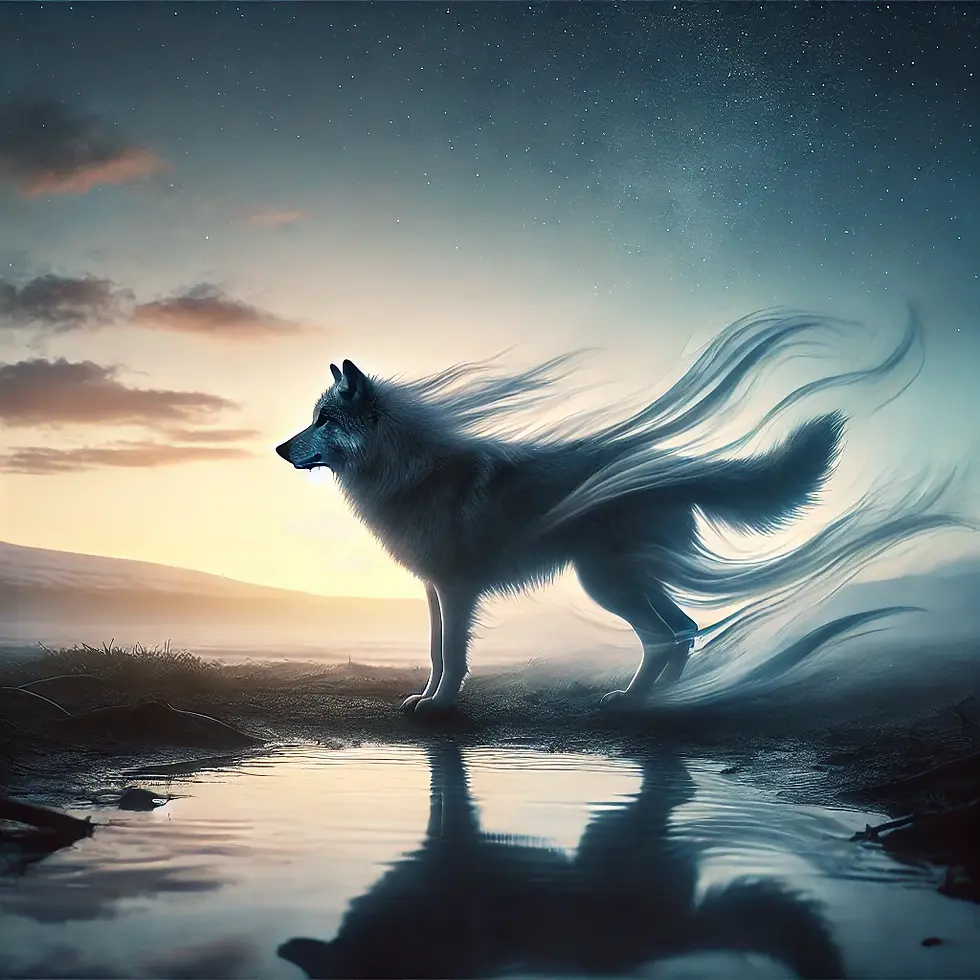Embracing Being a Wild Animal in a World That Tries to Tame Me
- Liz

- Feb 23
- 3 min read

My son said something to me today that struck a deep chord: "It’s almost like you’re a wild animal, and he’s trying to cage you."
His words lingered in the air, igniting something inside me.
Yes. Yes, that’s exactly it. And yet—no. I don’t think he needs to. But why does it feel that way? Why do I feel like I’ve spent my life trying to navigate a world that doesn’t know what to do with someone like me?
Society teaches us that to be wild is to be unruly, unfit for structure—perhaps even dangerous. We are conditioned to believe that the wild must be tamed, controlled, subdued. But to people like my son and me, wildness isn’t a flaw. It’s our essence. It’s what makes us feel alive.
When I think of wild animals, I don’t picture chaos or destruction. I see something free. Something that moves with instinct, thrives in vast openness, and refuses to be confined by artificial boundaries. I have never fit into the neat little boxes the world has tried to place me in. I have never been someone who can exist in a world that demands silence, obedience, and conformity. I have always needed space to breathe, to question, to create.
But what happens when that wildness is seen as a threat? When people misinterpret it as recklessness rather than freedom?
I look back at my marriage, at my life, at all the times I tried to suppress this part of myself—to make myself smaller, more palatable, easier to handle. I convinced myself that if I just calmed down, if I just stopped feeling so much, stopped pushing so hard, then things would be easier. If I dulled my emotions and learned to function the way society expected, maybe—just maybe—I would be loved the way I needed to be loved.
But in doing so, I lost myself. I allowed my own voice to be eroded, not by force, but by my own surrender. And the most painful part? I allowed it because I thought love required it.
I see it clearly now. My husband, with all of his own wounds and fears, tries to bring order to the world in the only way he knows how. He doesn’t understand my wildness—doesn’t know what to do with it. He sees my freedom, my expression, my unfiltered thoughts, and instead of recognizing the beauty in them, he sees unpredictability. And the world isn’t much different, is it?
That’s why I deleted Facebook. I was tired of being misunderstood, of people watching me unravel as if my pain was some kind of spectacle. I didn’t want to be on display, where my emotions could be dissected and judged. But deep down, I also deleted it because I felt caged by it—by the expectations, the constant need to explain myself, the demand to filter my emotions into something socially acceptable.
I don’t want to be tamed.
I don’t want to live in a world where my emotions are policed, where my thoughts are only valid if they are digestible for others.
I am a wild animal.
But I am not lost. I am not broken. And I am not something that needs to be confined.
Maybe the problem isn’t my wildness. Maybe the problem is a world that doesn’t know how to handle people who refuse to be tamed.
I don’t have all the answers yet, but I know this much: I will never put myself back in a cage. Not for my husband. Not for society. Not for anyone.
And if someone wants to walk this path with me, they must understand one thing—my freedom is not negotiable.
—Liz



Comments